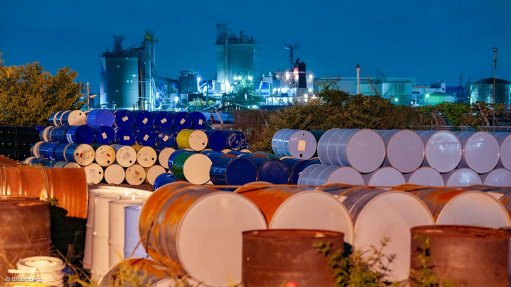Powering a Sustainable Future: How Businesses and the Environment Benefit from Renewable Energy and PPAs
This article has been supplied by the author and has not been written or solicited by Creamer Media. It may be available only for a limited time on this website.
By Jan Fourie, Executive Vice President for Scatec in Sub-Saharan Africa
South Africa's energy market is currently witnessing a remarkable transformation as it shifts towards renewable energy to combat the persistent load shedding crisis, which resulted in 208 days of blackouts in 2022.
"As the world confronts the detrimental effects of human activities on the environment, renewable energy offers a way to address climate change challenges, without halting industry and development," says Jan Fourie, Executive Vice President for Scatec in Sub-Saharan Africa.
The national Renewable Energy Independent Power Producer Procurement Programme (REIPPPP) has played a significant role in accelerating the growth of Independent Power Producers (IPPs) and expanding the role of private providers in the energy market.
Additionally, recent key legislative changes and the allowance of wheeling for private companies have further contributed to the adoption of renewable energy solutions and expanded the role of private providers in the energy market.
"Big businesses that have signed Power Purchase Agreements (PPAs) with renewables oriented IPPs have significantly improved their environmental impact by reducing their carbon footprints and becoming less reliant on fossil fuels," Fourie asserts, adding that, electricity generated from renewable resources like solar and wind emit little to no greenhouse cases.
"Around the world, countries are increasingly ushering in conducive regulatory environments: moving away from vertically integrated power utilities in favour of private providers and PPAs - which often prove more reliable than state-owned providers. Climate change concerns are driving this transition," Fourie explains.
Fourie highlights that current legislation enables businesses to sign Power Purchase Agreements (PPAs) with Independent Power Producers (IPPs), offering stable and often low-cost electricity without upfront expenses – "a strategy that can relieve the pressure on Eskom, and aid South Africa in reducing our historic over-reliance on fossil fuels," he elaborates.
The national grid's infrastructure allows for wheeling: the transmission of independently produced renewable power through the grid. "Wheeling enables private sector entities - even those based in areas with unfavourable environmental conditions - to access affordable, reliable renewable energy," Fourie notes.
Fourie envisions a future with nuanced, multilateral PPAs that allow agnostic energy mixes and flexible financing and contracting models. Private sector PPAs could potentially create a new ecosystem of interconnected projects with innovative methodologies and delivery systems.
Entering a PPA for the first time can be complex, however, and requires some careful planning and negotiation. Fourie suggests that businesses need to collaborate with experienced professionals who can guide them through the process and help overcome any challenges.
"Navigating not only the business of power generation, but also the regulatory environment, including environmental, social, and land permitting requirements, is critical for businesses establishing energy generation facilities. Working with experienced entities like Scatec ensures smooth navigation of regulations and action plans," he says.
Fourie explains that PPAs in South Africa adhere to the Electricity Regulation Act No.4 of 2006: Electricity Regulations on New Generation Capacity.
"Private power generators must register with NERSA, and the IPP-generated power is sold either directly to a customer or through a trader. PPAs are typically long-term contracts, but recent changes in regulation, technology, and industry enable shorter agreements and shared risk, allowing more tailored PPAs for private consumers," he expands.
"Market education is crucial, as businesses may have limited knowledge of the energy market and potential cost-effective participation. Scatec, as a leading renewable energy provider, offers earned expertise, to walk the path with businesses, alleviate fears and misconceptions, and share insights for successful clean energy implementation,"
"Managing operational risks is equally essential," Fourie notes, "as renewable energy projects can face challenges such as equipment maintenance, vegetation control, and power system management. A risk management plan is a must for businesses planning to own and operate independent facilities. Scatec offers Operation and Maintenance contracts alongside solution offerings for the life of the project," he adds.
In conclusion, South Africa's private PPAs are governed by various regulations and policies, with the country taking strides to promote renewable energy development through increased thresholds for the private sector and programs like REIPPPP. It's important for private entities to understand the regulations and policies applicable to their specific situation, obtaining the necessary licenses and approvals before engaging in a PPA.
As South Africa's renewable energy market progressively aligns with those of other nations, it is driven by the demand for dependable power and a commitment to minimizing the country's environmental impact. The growth of renewable energy in South Africa's energy market signifies a pivotal moment in the nation's pursuit of a greener, more sustainable future.
Comments
Press Office
Announcements
What's On
Subscribe to improve your user experience...
Option 1 (equivalent of R125 a month):
Receive a weekly copy of Creamer Media's Engineering News & Mining Weekly magazine
(print copy for those in South Africa and e-magazine for those outside of South Africa)
Receive daily email newsletters
Access to full search results
Access archive of magazine back copies
Access to Projects in Progress
Access to ONE Research Report of your choice in PDF format
Option 2 (equivalent of R375 a month):
All benefits from Option 1
PLUS
Access to Creamer Media's Research Channel Africa for ALL Research Reports, in PDF format, on various industrial and mining sectors
including Electricity; Water; Energy Transition; Hydrogen; Roads, Rail and Ports; Coal; Gold; Platinum; Battery Metals; etc.
Already a subscriber?
Forgotten your password?
Receive weekly copy of Creamer Media's Engineering News & Mining Weekly magazine (print copy for those in South Africa and e-magazine for those outside of South Africa)
➕
Recieve daily email newsletters
➕
Access to full search results
➕
Access archive of magazine back copies
➕
Access to Projects in Progress
➕
Access to ONE Research Report of your choice in PDF format
RESEARCH CHANNEL AFRICA
R4500 (equivalent of R375 a month)
SUBSCRIBEAll benefits from Option 1
➕
Access to Creamer Media's Research Channel Africa for ALL Research Reports on various industrial and mining sectors, in PDF format, including on:
Electricity
➕
Water
➕
Energy Transition
➕
Hydrogen
➕
Roads, Rail and Ports
➕
Coal
➕
Gold
➕
Platinum
➕
Battery Metals
➕
etc.
Receive all benefits from Option 1 or Option 2 delivered to numerous people at your company
➕
Multiple User names and Passwords for simultaneous log-ins
➕
Intranet integration access to all in your organisation




















